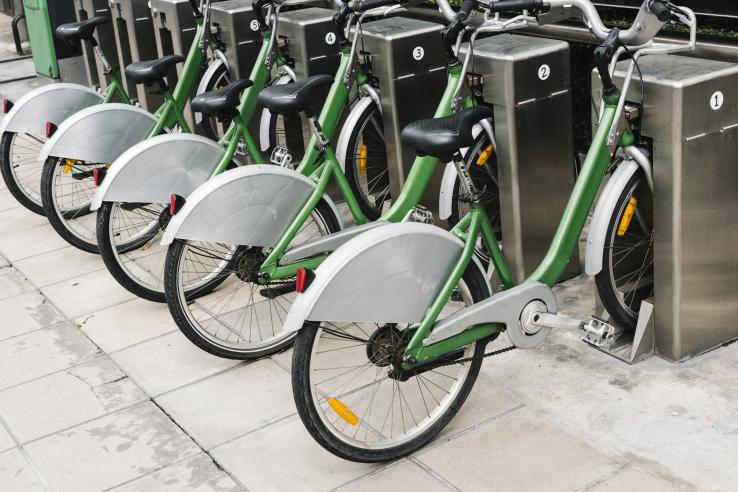Advancing Transportation Decarbonization through Rigorous Evaluation in the Climate Action Learning Lab

Webinar Overview
As J-PAL North America opens applications for a new Climate Action Learning Lab for US state and local governments, we are conducting two webinars—one focused on transportation decarbonization and one on residential energy efficiency—that explore how data and rigorous evaluation can be leveraged to build the evidence base and scale mitigation solutions that work.
This webinar focused on transportation decarbonization, providing a brief overview of existing evidence and research opportunities in the transportation decarbonization space. Featured speakers also discussed randomized evaluations of programs seeking to reduce vehicle miles traveled, including an evaluation on strategies to incentivize active and shared travel in the Bay Area, and a new research partnership to evaluate an e-bike rebate program in Atlanta. Additionally, speakers reflected on the process of assessing evaluation needs, utilizing randomized evaluation to inform future transportation programming, and how local jurisdictions and researchers can work together to plan an evaluation that aligns with jurisdiction priorities.
We also provided information about the J-PAL North America Climate Action Learning Lab and answer questions related to this exciting opportunity.
Panelists
Krute Singa is a principal planner at the Metropolitan Transportation Commission and Association of Bay Area Governments (MTC/ABAG). Her suite of programs includes Regional Mobility Hubs, Parking Management, Transportation Electrification and Behavior Science/Change. Her objective is to help reach the state’s greenhouse gas emissions targets by creating policies, partnerships and behavior change programs to reduce solo driving trips. Krute received her Master’s in City and Regional Planning from the University of California, Berkeley.
Casey Wichman is an Associate Professor in the School of Economics at the Georgia Institute of Technology and a researcher in the J-PAL network. He is an applied microeconomist working on issues at the intersection of environmental and public economics. His research focuses on how people interact with the natural and built environment, and what that behavior reveals about the value of environmental amenities. Dr. Wichman's research spans water and energy demand management, climate change impacts and policy, valuation of environmental resources and infrastructure, urban transportation, public good provision, and outdoor recreation.